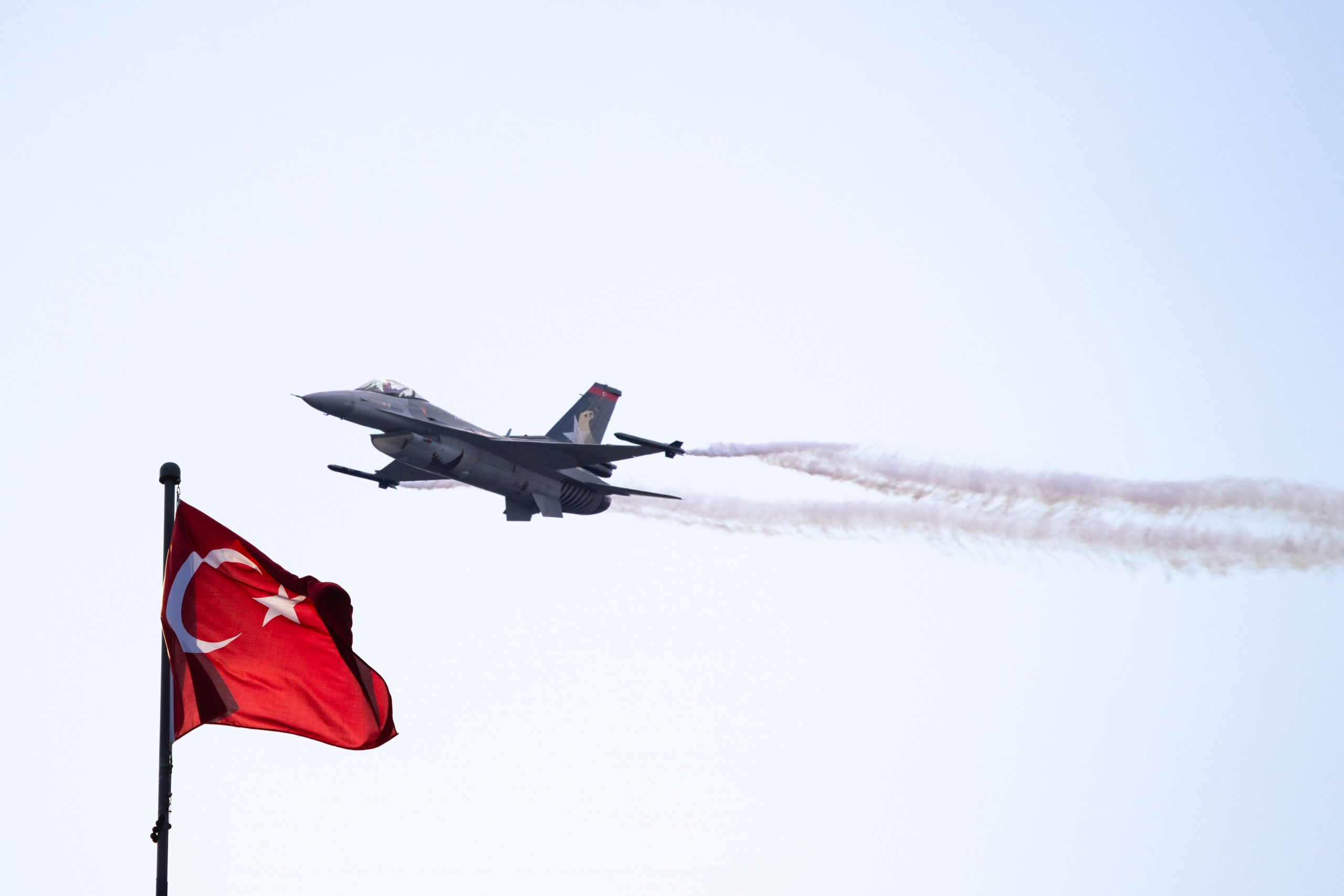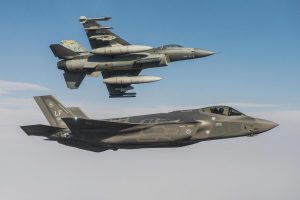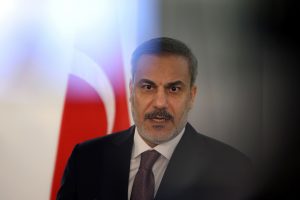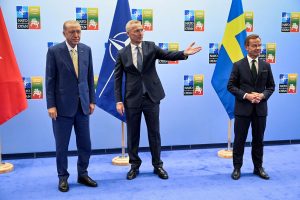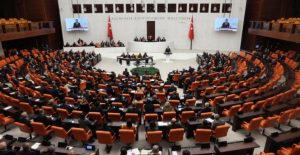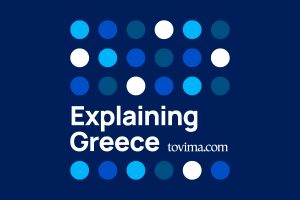The United States has approved the sale of F-16 fighter jets to Turkey, following the Turkish parliament’s ratification of Sweden’s NATO membership.
Despite the green light for the F-16 sale, Endy Zemenidis, Executive Director of Hellenic American Leaders (HALC), remains optimistic. He asserts that the “No Jets for Turkey” campaign has been one of the most successful multi-year endeavors in Washington.
HALC has played a pivotal role in the “No Jets for Turkey” coalition for over six years, advocating for restrictions on military sales to Turkey due to concerns about its provocative actions. These actions are perceived to undermine U.S. and Western interests in the Eastern Mediterranean, a critically important region of the world.
In an interview with the newspaper “To Vima,” Mr. Zemenidis evaluates the achievements of the coalition, emphasizing the conditions imposed on Turkey’s policies, while also addressing the ongoing role of the State Department and the necessity of vigilance to prevent any potential reversal of the progress made.
HALC has led the “No Jets for Turkey” coalition for over 6 years. Do you consider the campaign unsuccessful now that the F-16 sale to Turkey has been approved?
Exactly the opposite. If you look at the deal as a whole – how long it took, what conditions were imposed, what Greece received and what Turkey didn’t – this campaign has easily been one of the most successful multi-year campaigns Washington has seen.
Let’s catalogue the successes. The initial goal of the campaign – which was mocked by many in the United States AND in Greece – was to condition or block the F35s to Turkey. With Turkey’s help – via their diplomatic and political self-goals – that goal was achieved. Imagine if Turkey’s challenges to Greece sovereignty and EEZs were supported by a fleet of 100 F35s today.
When it came to the F16s, the coalition demanded changes in Turkey’s policies and actions before any such sale could proceed. And promises or rhetoric out of Ankara were not enough. The pause in overflights is tied to the pressure out of Washington – especially in Congress. And given the recently revealed conditions laid out in the letter from the State Department to Congress, Turkey will have to continue this end to overflights for a number of years if it wants the entire fleet of F16s that was just approved. Never before has a NATO ally been faced with such conditions.
The campaign also galvanized and united multiple groups – Greek Americans, American Jews, Armenian Americans, Kurdish Americans, Hindu Americans, Assyrian Americans, Christians groups, human rights organizations, foreign policy groups. This is a coalition that maintains influence across the political spectrum and can keep up the pressure to live up to the conditions mentioned above, but to force additional changes in behavior from Ankara. So, the campaign has achieved major victories and will keep going until Turkey’s threatening and destabilizing behavior has ended.
While many believe the campaign was unsuccessful, given that Turkey ultimately sealed the F-16 deal, was it realistic to expect a perpetual delay in reaching this agreement?
People can have their opinions but they cannot have their own facts. The campaign – which was launched to ensure that Greece’s sovereignty was protected and Turkey was held accountable – was indeed successful. Greece achieved a great deterrent factor, Turkey has had to maintain a change in behavior, and there are accountability measures that will last for years. Those are the facts. Anyone who wants Greece to maximize the benefits of high standing in Washington and a strong bilateral relationship in the U.S. should start with facts. In fact, those who are arguing that the Greek government had some sort of veto right over this deal is lying to the people of Greece.
The U.S. does not grant third parties ultimate say over bilateral defense deals. It didn’t do so in the case of Israel – Saudi Arabia; it didn’t allow Turkey to veto the latest upgrades with Cyprus, etc. Credit must go to the Mitsotakis government and the Embassy of Greece and the U.S. Embassy in Athens for successfully elevating the Aegean to an issue of prime consideration in U.S. policy in the region. Just a few years ago, the Aegean was not something policymakers, think tankers or the U.S. media were giving attention to. We have the opposite today. Those are the facts. And the priority today is to make sure the U.S. commitment to preventing aggression in the Aegean and Eastern Mediterranean stays in place no matter who holds what seat.
Do you trust the State Department to enforce the conditions if Turkey’s provocative activities resume?
This issue reminds me of the Winston Churchill observation that “Americans will always do the right thing, only after they have tried everything else.”
To be fair to the State Department, there was never an American official that welcomed tension in the Aegean or a potential conflict between two NATO allies. But the practice of quiet diplomacy with Turkey did not yield any results.
Congress led the change and “quiet” pressure started to become “loud”. As recently as the end of the Trump presidency – when we had extreme tensions between Greece and Turkey – the Aegean wasn’t raised with the same regularity by the State Department as it is now. And for State to commit to a Qualitative Military Edge for Greece is a historic development as well.
But we do have to make sure they don’t go back to trying all the wrong things. De-escalation in the Aegean is not the same as peace, Turkey still plays a destabilizing role in Cyprus, and Ankara has shown the willingness to use US weapons inconsistently with US interests and values. Our coalition, our allies in Congress and Greece all have to be on alert to prevent any reversal of the progress and precedents that have just been achieved.

